Queen's funeral flowers include a touching royal tradition
- Oops!Something went wrong.Please try again later.
Queen Elizabeth II's funeral is taking place today (Monday 19th September 2022) at Westminster Abbey, after she passed away peacefully at Balmoral Castle on Thursday 8th September.
Crowds are gathering on the streets of London and over 2,000 guests have taken their seats inside Westminster Abbey ahead of the memorial service, which will begin at 11:00 BST. Marking the end of 10 days of events across the UK since Her Majesty's death, the service will pay tribute to the Queen's "remarkable reign and lifetime of service", it said.
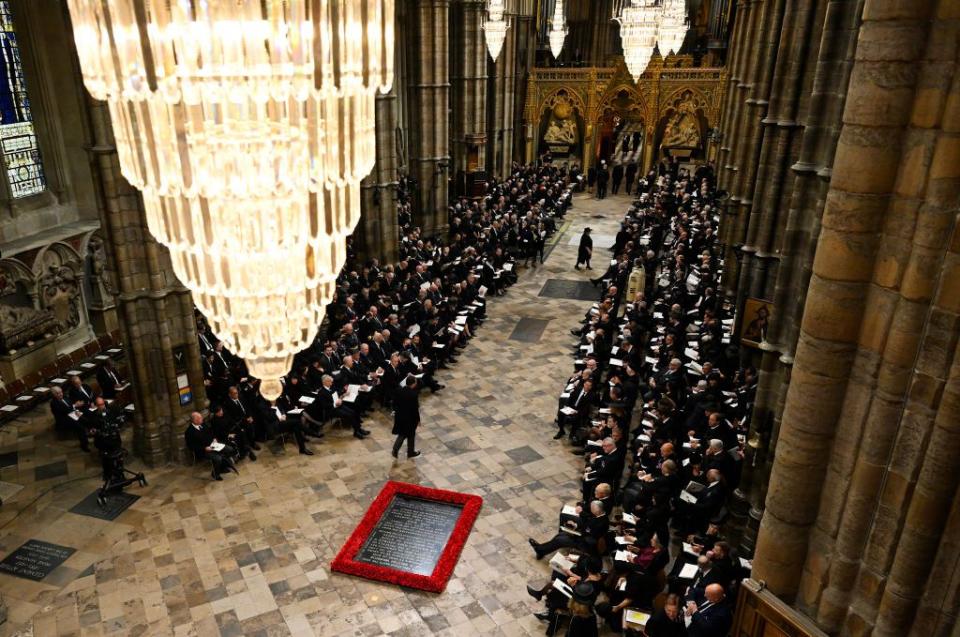
What will the Queen's funeral flowers be?
The Queen's funeral flowers inside Westminster Abbey include asiatic lilies, gladioli, alstroemeria, eustoma, foliage of English oak, weeping birch and sprigs of myrtle — a flower which was used in the Queen's wedding bouquet, as is royal tradition, according to The Telegraph.
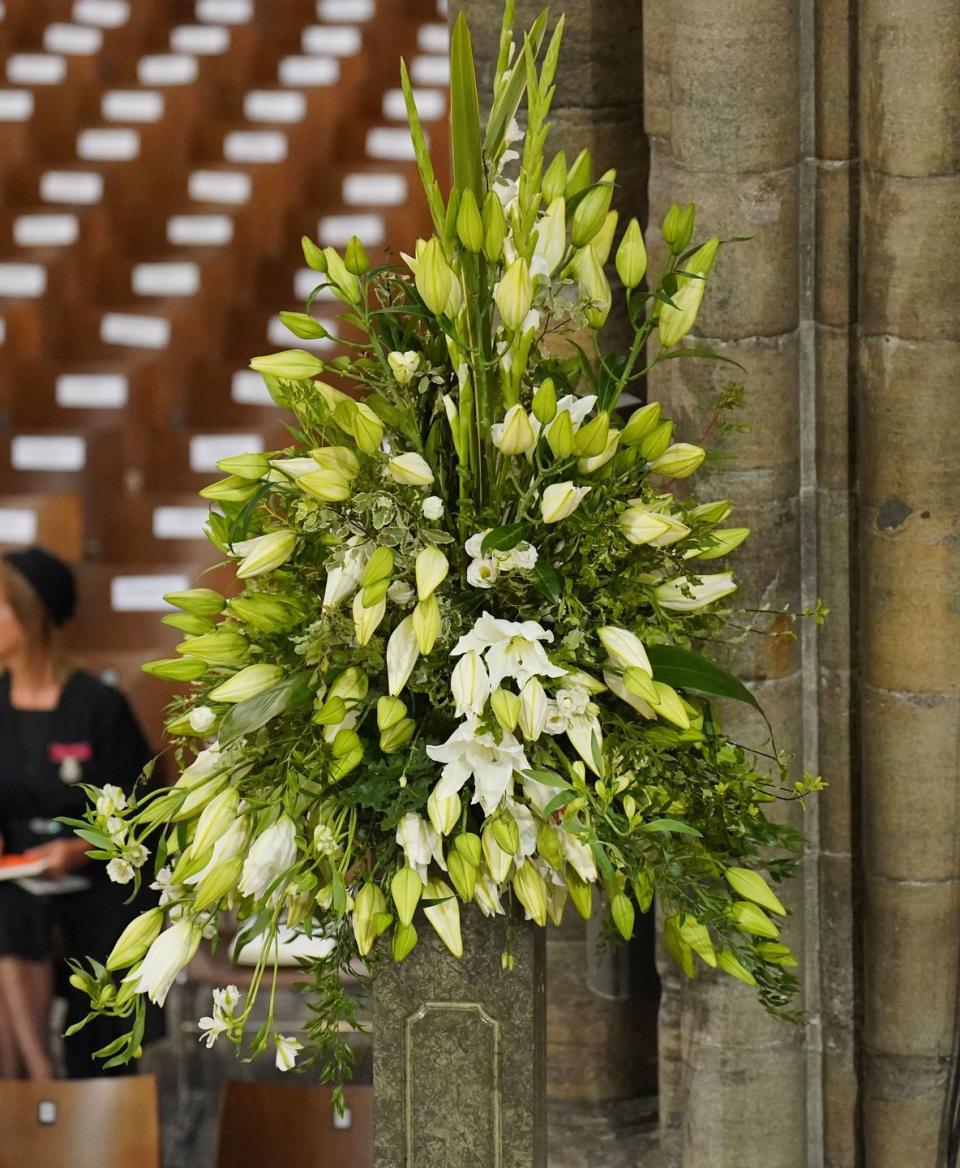
The wreath sat atop the coffin features green foliage, pink roses and rosemary, some of which were chosen by King Charles. Draped in the Royal Standard and carrying the Imperial State Crown, the wreath contains plants from the gardens of Buckingham Palace, Clarence House and Highgrove House. This is the second wreath to appear on the Queen's coffin.
Foliage was chosen for its symbolism, including rosemary for remembrance and English oak which symbolises the strength of love. Myrtle was cut from a plant that was grown from a sprig of myrtle in the Queen's wedding bouquet.
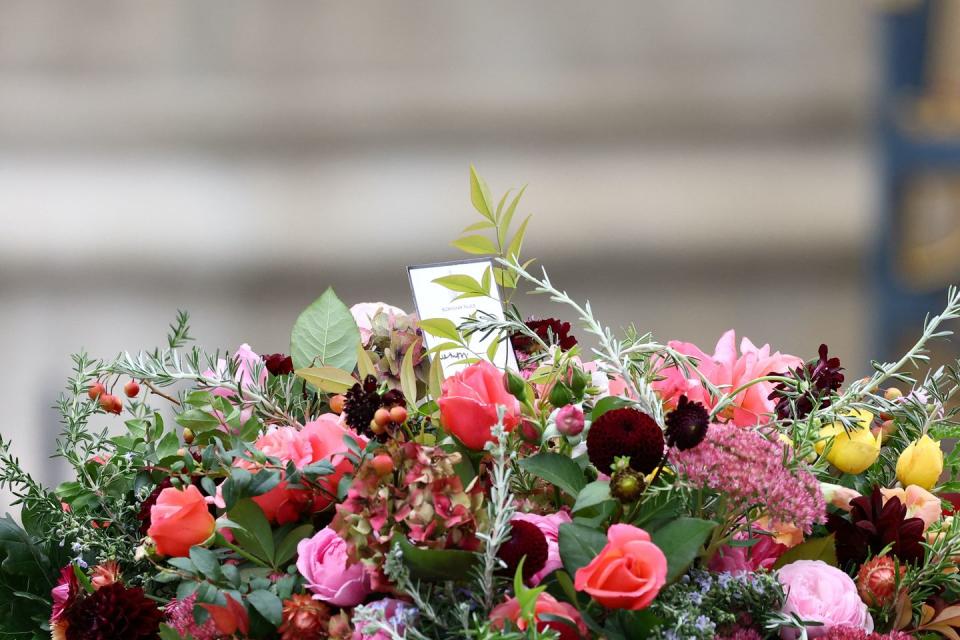
Other flowers in the wreath include garden roses, autumnal hydrangea, sedum, dahlias, and scabious. These are in shades of pink, white, gold and deep burgundy, to reflect the Royal Standard.
According to Sky News, King Charles requested the wreath to be made sustainably without the use of floral foam.
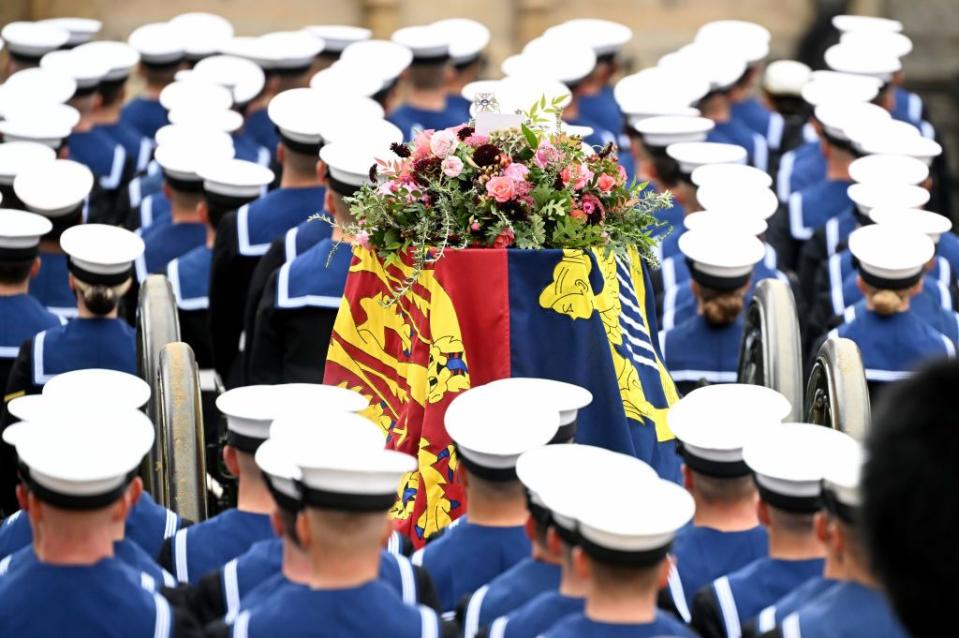
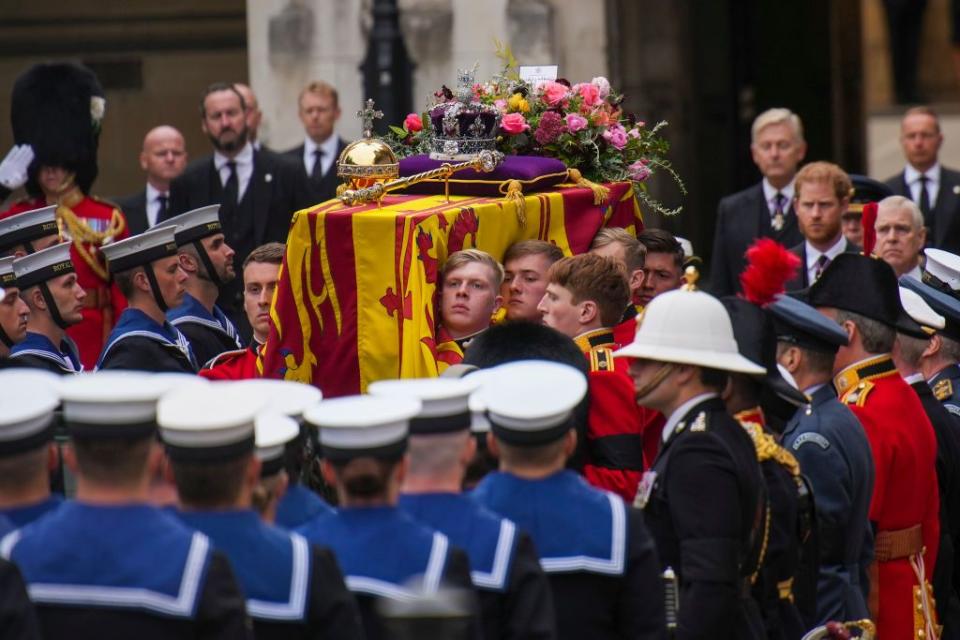
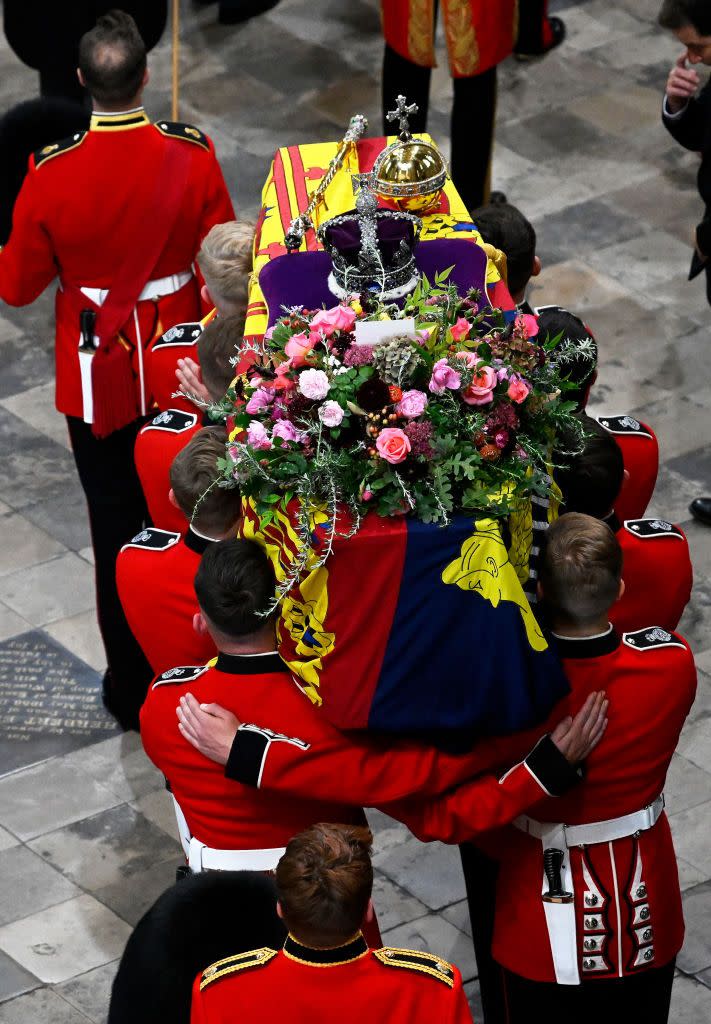

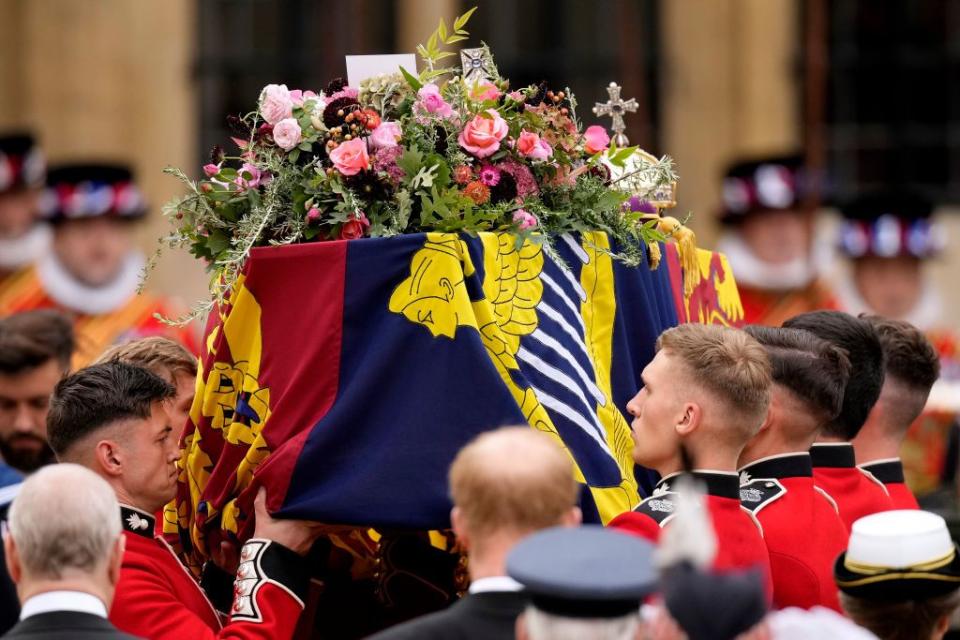
The first wreath was made from some of the Queen's favourite flowers, picked from the Balmoral Estate. These included sweet peas, dahlias, phlox, white heather, pine fir, white spray roses, white freesias, white button chrysanthemums, spray eryngium, foliage, rosemary, hebe, and pittosporum. The wreath also included pine and lavender from Windsor Castle, reports from The Express say.
"The royal florist has place a fresh wreath of flowers [on the coffin]," says Irish correspondent Fergal Keane. "This wreath of flowers has included a selection of foliage, including pines from the gardens of Balmoral, and lavender and rosemary from the gardens of Windsor. There's rosemary, that's for remembrance; pray you, love, remember."
According to Hello! Magazine, the sweet peas are also a nod to the Queen's late husband, Prince Philip. When he died in April 2021, the Queen picked out sweet peas for his funeral wreath. The flowers are often associated with the ideas of departures and goodbyes, meanwhile dahlias can represent a lasting commitment between two people.
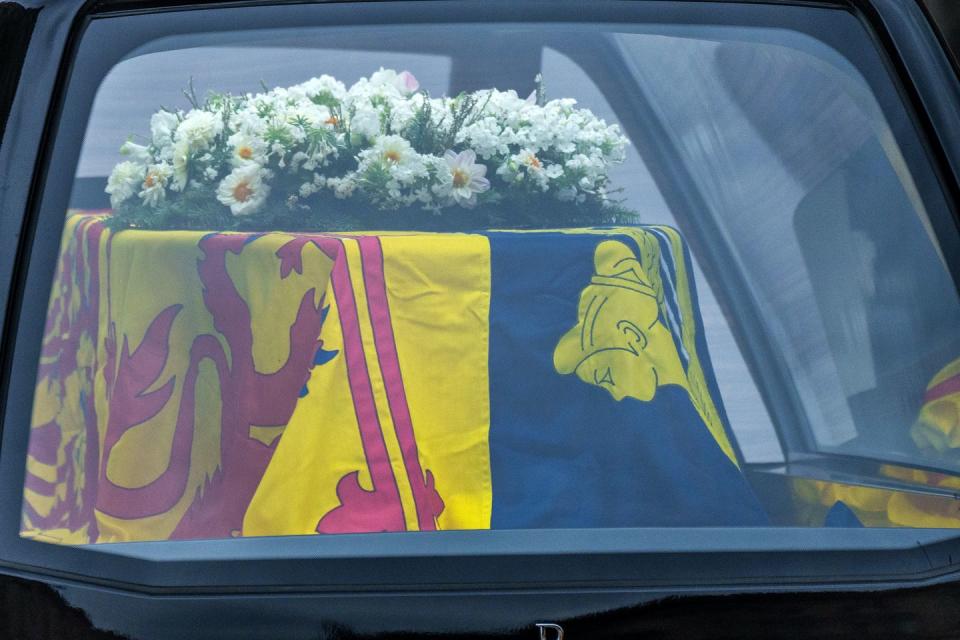
Public floral tributes to the Queen
Since the announcement of Her Majesty's death, mourners have been flooding to royal residences to lay tribute bouquets. In particular at Balmoral, Buckingham Palace, Windsor and Sandringham.
A dedicated memorial flower garden has been set up in Green Park, London. Here, mourners have been helping Royal Parks gardeners take the plastic wrapping off the flowers, to aide the compost process and keep the blooms looking fresh.
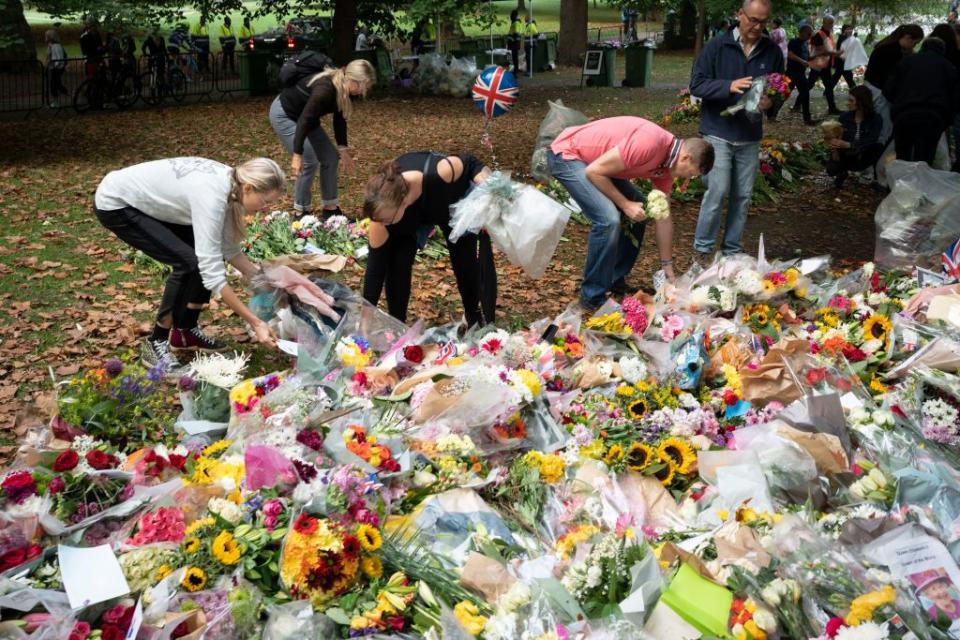
The Royal Parks issued a statement saying: "Visitors are invited to leave floral tributes at a dedicated site in The Green Park. You will be asked to remove wrappings from floral tributes. Please consider arriving with the wrapping already removed. Bins will be provided for those unable to do so. You are respectfully asked not to lay tributes outside of the official floral tribute site. Removing the wrapping will aid the longevity of the flowers and will assist in subsequent composting which will start between one week and a fortnight after the date of the funeral."
What are the Queen's favourite flowers?
Queen Elizabeth II loved to be surrounded by flowers, particularly Lily-of-the-Valley. The Queen's love of the white bloom is well-documented, stemming from its inclusion in her coronation bouquet in 1953. In addition to being a staple flower for key royal events, Lily-of-the-Valley is also a permanent feature of the floral displays at Buckingham Palace.
Elegant and hardy, it has dark green leaves and white, bell-shaped, fragrant flowers. It is famed for being relatively easy to grow.
Is there a rose named after Queen Elizabeth II?
Elizabeth (Ausmajesty), a graceful pale pink-apricot rose, was a new variety launched by David Austin Roses to mark the Queen's Platinum Jubilee. Named in honour of Her Majesty Queen Elizabeth II, the flower has a strong, sweet, fresh fragrance with hints of lemon sherbet and Old Rose.
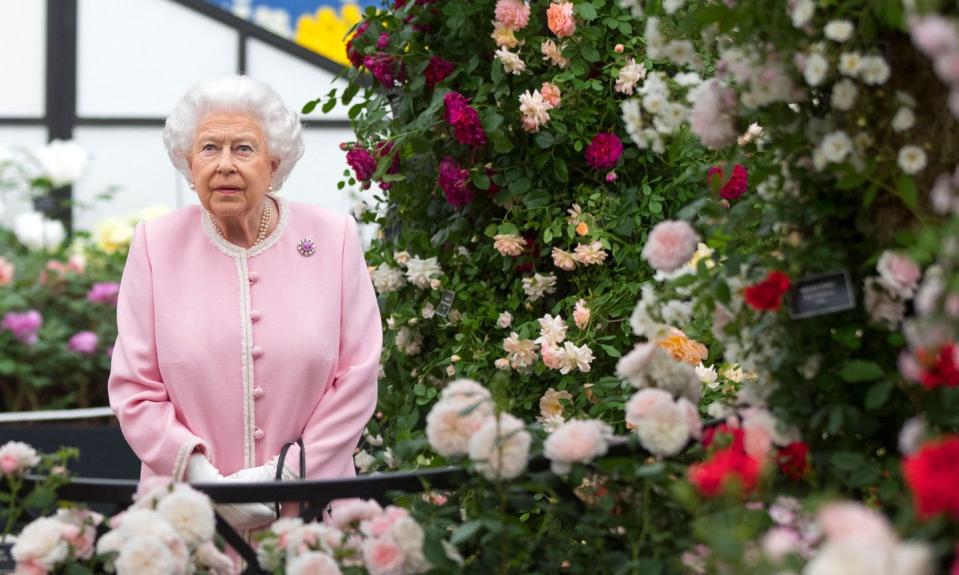
What colour is the Queen Elizabeth rose?
According to the RHS, the Rosa 'The Queen Elizabeth' is a very tall, upright rose with leathery, dark green leaves. It produces small clusters or scented, pink blooms from mid-summer to early autumn. Loved around the world, it was first bred by rose grower, Dr. Walter Lammerts, in the United States in 1954.
You Might Also Like

